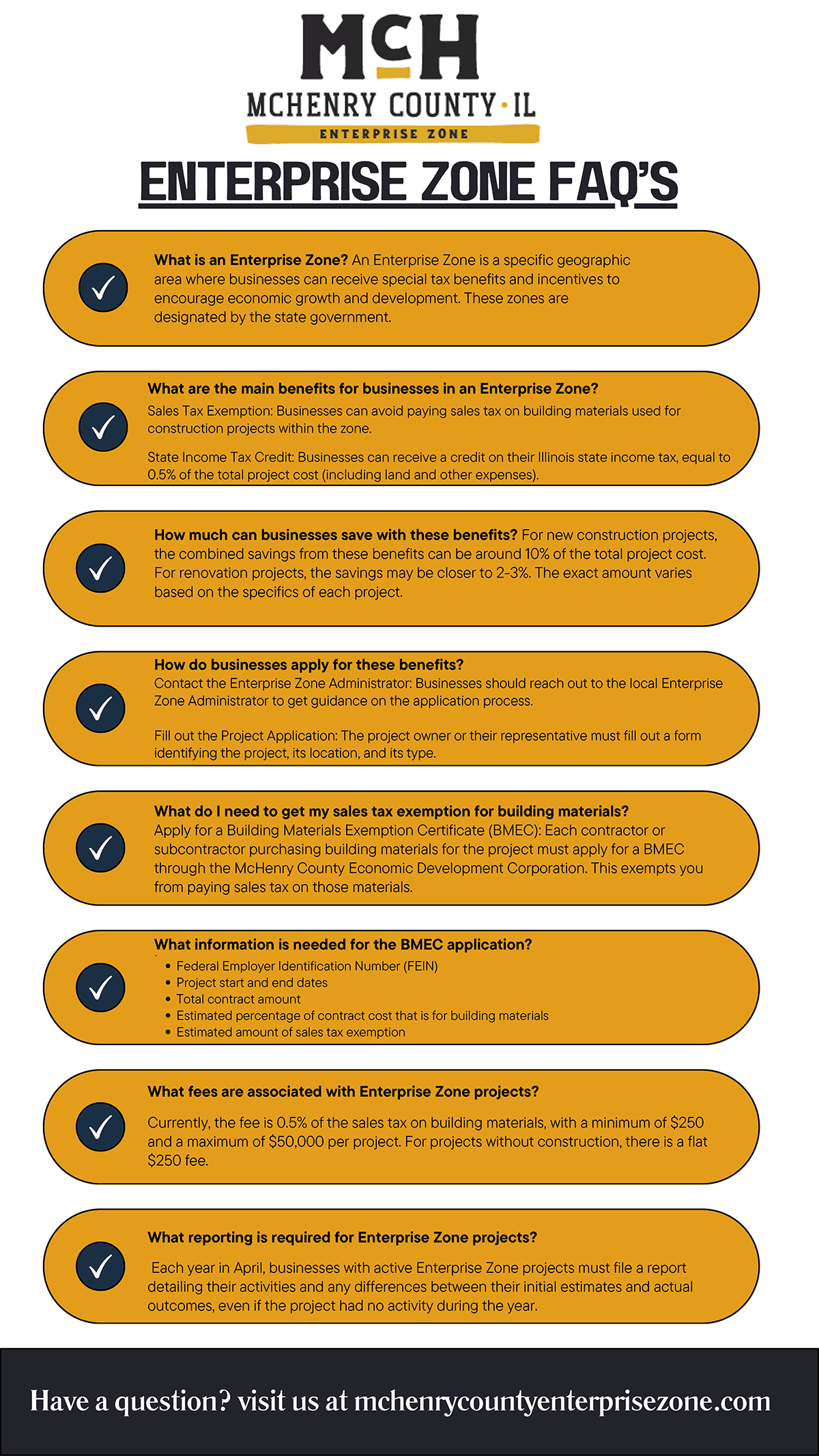FAQs
Frequently Asked Questions
If you have any additional questions, don’t hesitate to contact us.
If a business owner or contractor does not have an FEIN, they must request one from the Department of Revenue. To do this the business owner or contractor should go to the Departments of Revenue’s secure website and enter their social security number. They will be provided with an Applicant ID which can be used to complete the application.
No, you should not order or purchase any building materials before the sales tax exemption application has been approved. BY LAW No building materials exemptions are allowed before the certified date.
Yes. Each business that receives incentives must report the information the Illinois Department of Revenue (IDOR) requests and IDOR will complete the incentive calculations for the business. Enterprise Zone businesses must also provide their Zone Administrator with the information required by the Act. Reports must be submitted online at www.revenue.state.il.us by March 31 of each year. Please click here to learn more about reporting requirements or contact the HWEZ Administrator for more information.
Any project involving new construction on a site which previously was occupied by a building(s) will receive the real estate tax abatement on a “net new” basis. That is, the increased assessment amount to be abated will be based on the most recent assessment of the property which includes evaluation of the original building.
Yes. The Revenue Act 35 ILCS 120/1 df-1, as amended allows a business or enterprise that is certified by the Department of Commerce, that either creates a minimum of 200 FTE jobs in Illinois, or retains a minimum of 2,000 FTE jobs in Illinois; or which retains 90% of the existing jobs, a 6.25% state sales tax exemption on all tangible personal property which is used or consumed within an enterprise zone in the process of manufacturing or assembly of tangible personal property for wholesale or retail sale or lease. This exemption includes repair and replacement parts for machinery and equipment used primarily in the wholesale or retail sale or lease and equipment, manufacturing fuels, material and supplies for the maintenance and repair or operation of manufacturing or assembling machinery or equipment.
Requirements vary within the MCEZ. To determine whether your project qualifies for zone benefits, please click here. Or contact us for assistance or more information.
An Opportunity Zone is an economically-distressed community where new investments, under certain conditions, may be eligible for preferential tax treatment. Localities qualify as Opportunity Zones if they have been nominated for that designation by the state and that nomination has been certified by the Secretary of the U.S. Treasury via his delegation of authority to the Internal Revenue Service. – Definition from IRS.gov
- Information on Opportunity Zone Resources – CDFI
- Opportunity Zones Map – EIG
- FAQs about Opportunity Zones – IRS
- For a complete list of opportunity zones, see Notice 2018-48.
No, property tax cannot be abated within a TIF district. Even if a TIF district is included in a larger tax abatement zone, the TIF area itself must be excluded from any property tax abatement.
Be sure to ask whether your project falls within a TIF district.
